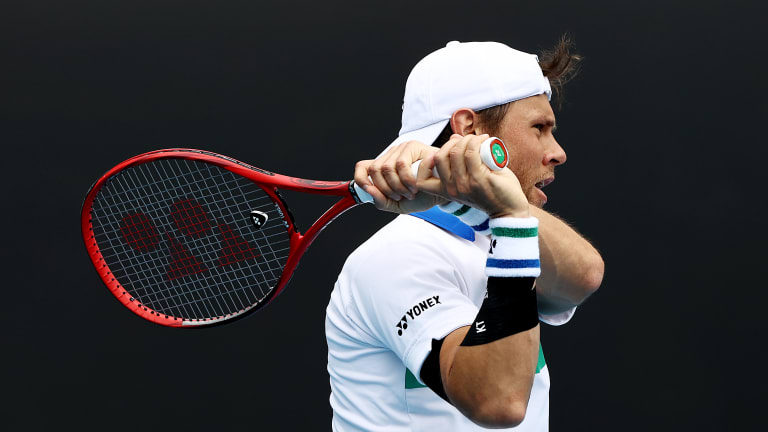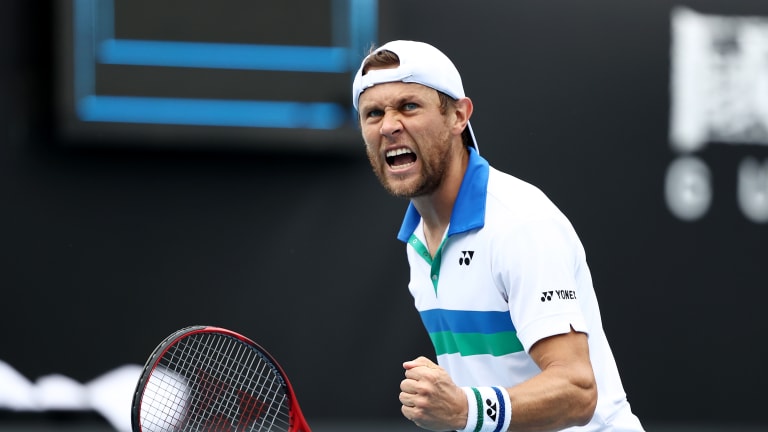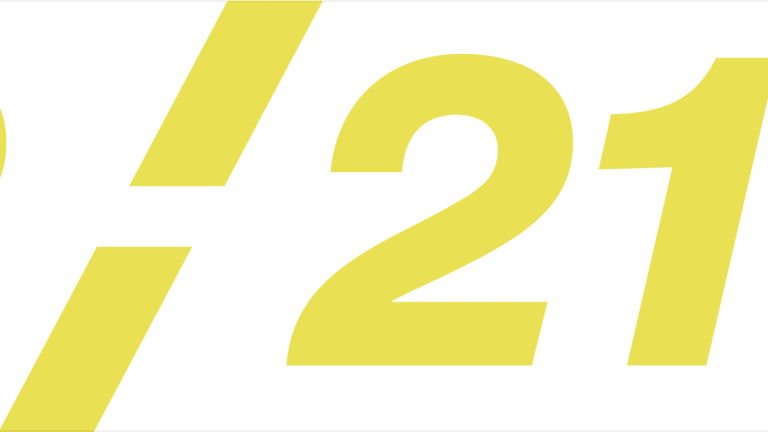Australian Open
After losing his game in 2020, Radu Albot is finding "me" again
By Feb 12, 2021Australian Open
Australia at Last: Reflections on a first trip to the AO
By Jan 29, 2025Australian Open
Alexander Zverev must elevate his game when it most counts—and keep it there
By Jan 27, 2025Australian Open
Jannik Sinner draws Novak Djokovic comparisons from Alexander Zverev after Australian Open final
By Jan 26, 2025Australian Open
Alexander Zverev left to say "I'm just not good enough" as Jannik Sinner retains Australian Open title
By Jan 26, 2025Australian Open
Jannik Sinner is now 3-0 in Grand Slam finals after winning second Australian Open title
By Jan 26, 2025Australian Open
Taylor Townsend and Katerina Siniakova win second women's doubles major together at the Australian Open
By Jan 26, 2025Australian Open
Madison Keys wins her first Grand Slam title at Australian Open by caring a little bit less
By Jan 25, 2025Australian Open
Henry Patten, Harri Heliovaara shrug off contentious first set to win Australian Open doubles title
By Jan 25, 2025Australian Open
Aryna Sabalenka takes a rare loss in Australian Open slugfest
By Jan 25, 2025After losing his game in 2020, Radu Albot is finding "me" again
In this exclusive from Melbourne, the Moldovan opens up about how he's been able to move forward after a trying year, as he looks to reach the fourth round of a singles major for the first time at the Australian Open.
Published Feb 12, 2021
Advertising
Advertising

After losing his game in 2020, Radu Albot is finding "me" again
© Getty Images
Advertising

After losing his game in 2020, Radu Albot is finding "me" again
© Getty Images
Advertising

After losing his game in 2020, Radu Albot is finding "me" again